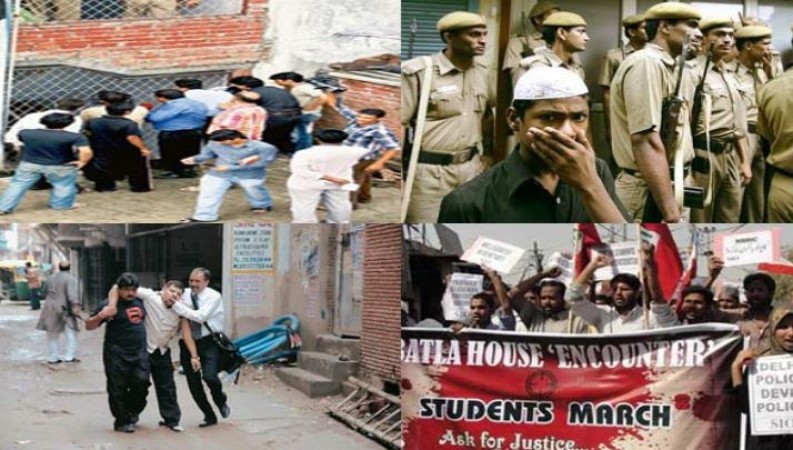
New Delhi: The Batla House encounter, a significant incident in India's recent history, has been a subject of controversy, intense debate, and political maneuvering. The encounter, which took place in 2008, continues to evoke strong reactions and opinions from various quarters of the society. Let's delve into the details of the encounter, the ensuing political discourse, and the leaders who called it false.
The Incident: What Happened at Batla House?
On September 19, 2008, in the Batla House locality of Delhi's Jamia Nagar, a fierce encounter between Delhi Police and suspected terrorists unfolded. The police team, led by the decorated Inspector Mohan Chand Sharma, was acting on a tip-off related to the Delhi serial blasts that had occurred earlier that month. The encounter resulted in the death of two suspected Indian Mujahideen terrorists, Atif Amin and Mohammad Sajid, and the arrest of another, Ariz Khan. Tragically, Inspector Mohan Chand Sharma also lost his life during the operation.
The Controversy and Allegations:
The Batla House encounter immediately became a contentious issue, with questions raised about the authenticity of the police action. A section of society, including some political leaders, human rights activists, and organizations, expressed doubts about the legitimacy of the encounter. They alleged that it was staged, labeling it as a "fake encounter."
Political Discourse and Allegations:
Several leaders and politicians from different parties entered the fray, making the Batla House encounter a political talking point. Some leaders called for an independent probe into the incident, claiming that there were inconsistencies in the police's version of events. Among the prominent politicians who raised doubts about the encounter were Arvind Kejriwal, Digvijaya Singh, and Mamata Banerjee.
Arvind Kejriwal: The current Chief Minister of Delhi, Arvind Kejriwal, had questioned the actions of the security forces during the encounter. He demanded an independent investigation, stating that even if the individuals were terrorists, it was crucial to catch them alive to uncover their handlers. He also suggested that there might be more to the encounter than met the eye.
Digvijaya Singh: A senior Congress leader, Digvijaya Singh, openly expressed skepticism about the encounter. He refused to apologize for his claims that the encounter was fake, maintaining that he still believed it to be true. Singh's stance ignited further controversy, with some questioning his motives for doubting the official version. Sonia Gandhi also cried over the death of terrorists in this encounter, as told by Congress leader Salman Khurshid in a statement.
Mamata Banerjee: The Chief Minister of West Bengal, Mamata Banerjee, declared that she would quit politics if her assertion that the encounter was fake turned out to be false. She vehemently challenged the authenticity of the encounter and expressed doubts about the government's narrative.
Court Verdict and Finality:
Despite the controversies and doubts surrounding the encounter, the Indian judicial system played a crucial role in bringing clarity to the issue. In 2013, a Delhi court convicted Ariz Khan for his involvement in the encounter and awarded him the death penalty. The court's judgment emphasized that the encounter was not staged but a genuine police operation against terrorists. The Delhi High Court also upheld the death penalty awarded to Ariz Khan by a lower court. The court's observations underscored the brutality of the act and deemed Khan a threat to society.
The Batla House encounter exemplifies how an incident can be exploited for political gains and sensationalized to advance various narratives. While political leaders have the right to voice their concerns and demand transparency, the courts' judgments have provided clarity on the matter. The Batla House encounter, once shrouded in controversy, has been established as a genuine police operation against terrorists. It serves as a reminder of the importance of separating politics from legal proceedings and respecting the judicial process.
EAM Jaishankar Takes Oath as Rajya Sabha Member Post Re-Election to Upper House
Remembering Kalyan Singh on His Death Anniversary: The Significance of Hindu Gaurav Diwas
Forgotten Triumph: Unveiling the Significance of the Battle of Bhopal in Indian History